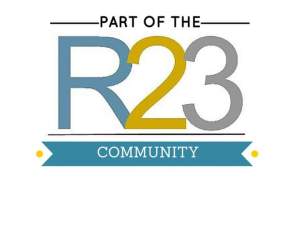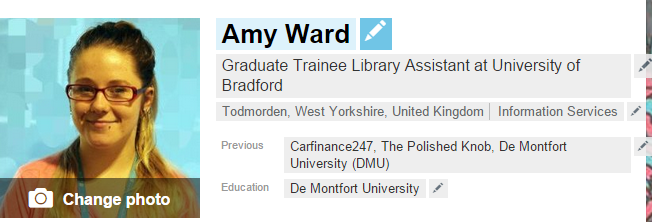Everyone seems to be using social media nowadays don’t you think? An estimated 2.03 billion people have active social media accounts which is equal to around 28% of the population. That’s one hell of a lot of cat videos, selfies and general viral stupidity. We spend a LOT of time using these things – only 39,757 years collectively spent on Facebook per day, no biggie. It doesn’t help the situation when you can carry them around with you everywhere you go. Nice one mobile technology.
The interesting infographic I’ve posted below prompted to think about social media and question whether or not it’s all just a passing trend? Social media sites fall in and out of fashion and yes, I’m thinking about you Bebo and Myspace. But I don’t think it is a passing trend. The sites we are using today might fall out of fashion yes, but I think the concept is here to stay. Gone are the days when we had to rely on actual face-to-face interactions if we wanted to socialise and gone are the days when we had to read a newspaper to find out what’s going on in the world… But does this mean social media “addicts” will withdraw into their online worlds, never to return to reality? No. Social media just helps us to communicate with each other in an increasingly busy world.
We shouldn’t forget about all of those people who aren’t using social media – 72% of the world’s population. In the UK 34% of adults do not have a social networking profile and in 2014 there were 4 million households (24%) without internet access; chances are they aren’t overly active on social media. It’s probably quite difficult to define what an “active” social media account even is. Lots of people have accounts but rarely use them. And despite the popularity of social media, I think a lot of people still need help setting up their profiles and using them. This is something that librarians can certainly help with.
Social media opens up a whole new world for people in terms of support networks, socialising, entertainment, professional development and so on. It provides a whole range of possibilites and opportunites and give you access to SO much information. This is a fantastic thing as long as you’ve got your ‘who wrote this’ hat on. If you are conscious about your online privacy and safety, think a little bit about what you’re posting and don’t take it too seriously – you can have a really useful and meaningful social media experience.
I’ll admit it, I think I might be a teeny weeny little bit addicted to social media. But I don’t necessarily think that’s a bad thing. Here’s why:
- I’m part of the 16% who use Facebook/ Twitter as my morning news courier. But I also use the BBC, Guardian and Metro news apps and all of the others that I’ve liked and followed. This helps to me get a broad view of some of the crazy stuff that’s going on in the world. I don’t think you should rely solely on social media for your daily news dosage, especially on April Fool’s Day, but it’s useful to have news on your social media feeds. Plus I wouldn’t say no to some of the Metro “news” articles posted on their Facebook page, they are hilarious! It’s good to get your news from a variety of sources and I try not to trust everything I read on the news anyway. I don’t take part in the debates that happen online about the news either, but I do like to read them because it gives me a good idea of people’s differing opinions and ideas (and it’s fun).
- I do spend a lot of time on social media, probably more than 2 hours a day… I mainly use Facebook, Pinterest, Twitter, WordPress, YouTube, Instagram and LinkedIn and I think it helps me to become a more knowledgeable, interesting person – hopefully… I find out a lot of stuff that I didn’t know before and you can learn more about your specific interests by following the right groups, people and pages – essentially the information comes to you. If all else fails, it certainly helps break the ice when you can talk about that hilarious viral video that’s doing the rounds… and if they haven’t seen it, you can show them! Everyone loves a bit of ninja cat right?
- My social media accounts serve as a gentle reminder of all the things I’ve done since I’ve had them. Timehop is a great app which shows me my photos and updates from this exact day in history. Because I’ve shared something that I’ve done with the world, it’s out there like a little cyberspace scrapbook, reminding myself and others that are interested that I do cool things sometimes. My blog is especially useful as I can use it to reflect on the stuff I am doing at work and share it with others.
- My family and friends follow me. It means we don’t have to see each other everyday… (This is a joke – if they read my blog they can tell me off). Seriously though, life can get busy at times and it’s a shame that you can’t always spend as much time with loved ones as you’d like. But with Facebook I can at least keep up to date with what my family and friends are up to and my mum can keep track of me.
- You can use social media for work stuff as well, who’d of thought it?! This is actually one of the reasons I end up spending so much time on Facebook and Twitter. Before I started my graduate traineeship I never knew librarians loved it so much. There is a huge community of them out there willing to share their expertise and knowledge and the best way to speak to them is via online networks. You can get involved in Twitter conversations such as #uklibchat and there are many Facebook groups and Twitter lists that are dedicated to discussing issues within libraries and sharing ideas. I’ve just joined the Libraries & Social Media Facebook group and there is always something interesting on there to read. I am planning on asking them about my grad trainee project which I am doing on social media in the academic library (will blog about this soon). I am going on a tour of Chetham’s Library which has been organised by the New Library Professionals Network. I signed up for the event on NLPN’s Facebook page and if I hadn’t of been on Facebook/ Twitter, I probably wouldn’t have even known about it. This is the case for pretty much every library event I’ve been to actually. I always find out about them on social media before I get chance to read about it in an email. I personally use social media for professional development and for fun simultaneously. I don’t really feel the need to seperate the two because my work is a huge part of who I am… and that’s enough cheese for one day.

Thanks to @rudai23 I am currently undertaking a free mobile learning course that teaches social media through social media for professional devlopment. http://rudai23.blogspot.co.uk/
Check out these crazy stats from GO-Globe.
Infographic by- GO Globe Singapore

